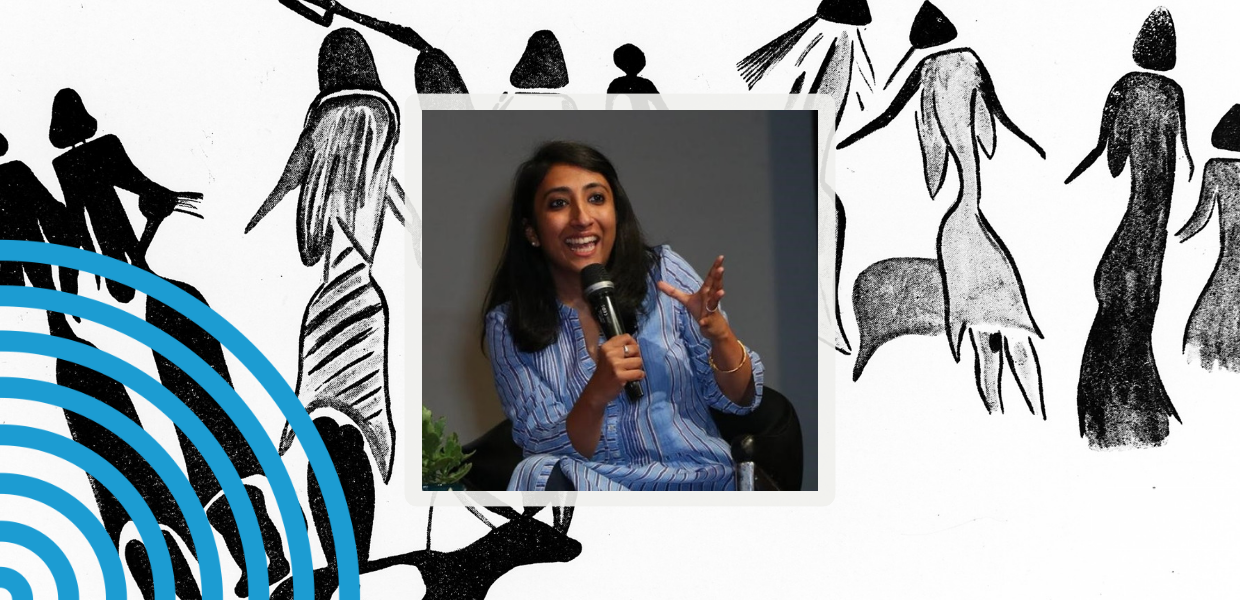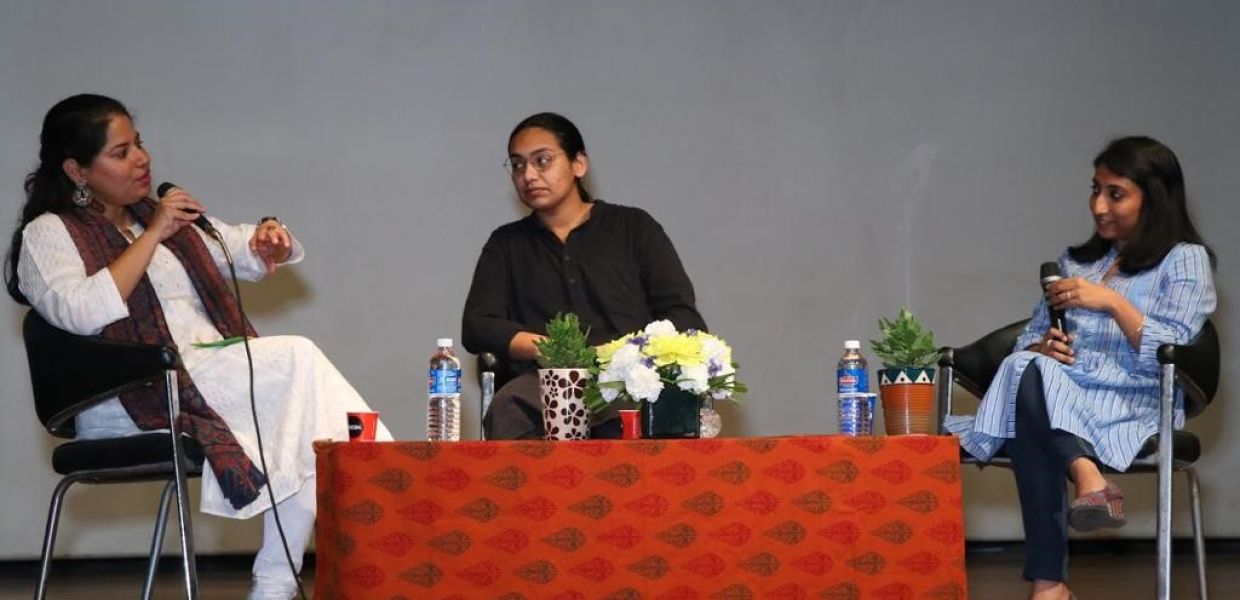What are you working on right now?
I am working on multiple projects right now; but for March, the focus is definitely on Wikipedia’s Art+Feminism campaign and one we started of our own for Women’s History Month, called ‘#TheseMughalWomen’. It sheds light on the women of the Mughal court; their contribution to the Empire; myth-busting and more than anything, making content about them, accessible online. The campaign involves museums and individuals. An interesting campaign that has started in India is #ChaloMuseum, pushed by the Kiran Nadar Museum of Art, and we’re trying to make visiting museums a ‘cool’ thing to do.
How did you get into your field?
I got into the culture and arts space back in 2008 during a college internship. It was a regular communications /marketing intern profile at UNESCO Delhi and it opened up a whole new world for me. I learnt about the different folk/craft traditions of the country, and it helped me startup Happy Hands Foundation after college. Then while working on artisan-education and helping them innovate on product design, I started visiting museums a lot, and well - that got me into the ‘history of art’ part of it! Since I’ve always loved engaging people with the arts, I think it was natural then to move towards a digital-driven platform for a new project, The Heritage Lab!
What are the challenges for women in the workforce today? What can be done to improve matters?
Working in the crafts sector, I realised that a huge hurdle to women joining the workforce is mobility. We struggled so much in building India’s first group of all-women puppeteers: there was family opposition, there was travel-constraint (should they have to go out of the city, etc) and there was a huge bias in terms of women ‘performing on stage’ even from behind the curtain.
When I moved from the capital city to a smaller city, I had the opportunity to engage with students who had moved from Tier-3 cities to study/gain a degree. I realised however, there is no career-guidance targeted at adolescent girls which will help them choose a career that aligns with their interests or skills; rather, it is about getting a degree that will help them find a better groom.
Interestingly, in the arts-management space: whether it was crafts or museums, I have definitely encountered more women than men at the work level. Maybe because the ‘arts’ are still not part of the mainstream here in India - and I see that as a blessing in disguise. I firmly believe that Culture and Arts are soft-power, and investing in cultural diplomacy can take India far ahead; so perhaps when the time comes, women already in the sector would be able to lead the movement.
I’d also add that museums/cultural institutions have to work very closely with government bodies, and that’s where the struggle is highlighted. In some cities (like mine for instance or mostly in Tier 2 or Tier 3 cities), it can be challenging. Women’s roles at cultural institutions aren’t free from bias either.
What can be done: Within the workforce, I think there have to be adequate upskilling opportunities focused on women; there has to be a safe space for them to voice concerns/engage in dialogue etc - and institutions really need to focus on women-friendly sanitation facilities.
Do you feel that women are sufficiently empowered and present in leadership positions?
I’ll speak specifically for museums - you definitely see so many women making a difference at important positions - whether as historians or art critics, as curators, researchers, archaeologists - women are leading different spaces. Most museums in India supported by the Ministry of Culture which is led by men. However, some of the most important museum roles - education, curatorial, conservation - have some fabulous women. In India, you have museums such as the Partition Museum, Kerala Museum, Maharaja Sawai ManSingh II Museum Jaipur, Piramal Museum, Kiran Nadar Museum, Sarmaya, and many others - all which have women in senior management/leadership roles. Unfortunately, however, these women have to be celebrated outside of the sector too - so that younger people can see them as role models.
What message would you share with women in the sector today?
An underlying stereotype within our sector is that women and tech don’t go together. I’d say, that we need to get out of our comfort zones to learn new things, share what we know and basically seek each other - chances are, someone might be able to support you when you least expect it.
Also, celebrate yourself! Campaigns such as #showyourwork are so important and women from the field must participate. But for that, I think we’d have to get a lot of museums and museum people on Twitter.
What digital communities or networks do you find rewarding?
For one, I really love the team at # ArtAndFeminism: so supportive and encouraging - at any time of the day, and from anywhere. I was once part of a US State Department program - and we have an alumni network in every city - my city network on Whatsapp is one of the most active, and supportive groups ever - we’re slowly building up a community of ‘Enthusiastic Museum People’ (owing to India’s experience of Ask-A-Curator day) so then again: we’re always learning from each other.
Apart from that - I absolutely love my museum-gang on Twitter! It is so rewarding to see chats like #MuseumHour (though at very unearthly hours for India, and I often catch up later).
Who (or what) inspires you at the moment?
I feel my digital museum friends are very inspiring, and I’ve learnt so much from them. For example, Hannah Hethmon who runs the Museums in Strange Places podcast; Mar who is ever-ready to help and has made CultureThemes so huge that Museums look forward to it.
I also have to say, I am absolutely taken by the open-source movement within museums in the West. India is slowly working on it, but it’ll be heartening to see how people engage with content once it’s accessible.
Want more? Visit our exhibition Pioneers which highlights the lives and achievements of historical European women. Visit the full list of profiles for the Women in Culture and Tech series - we publish three profiles per week throughout March.



